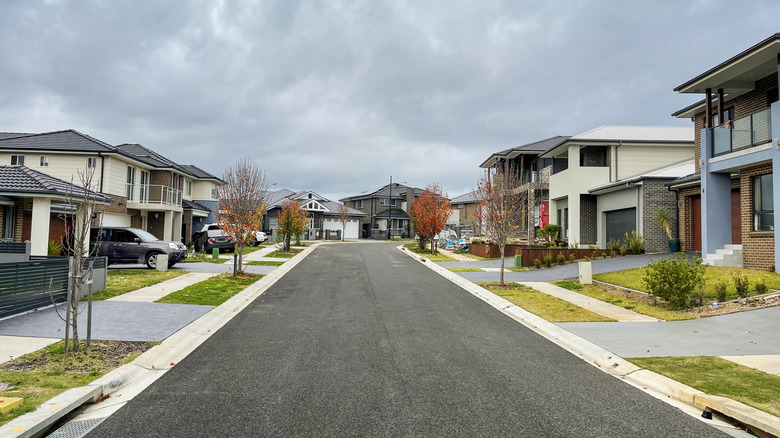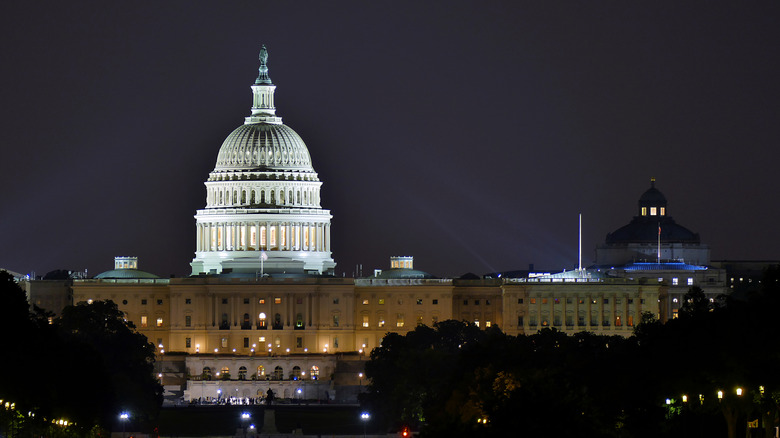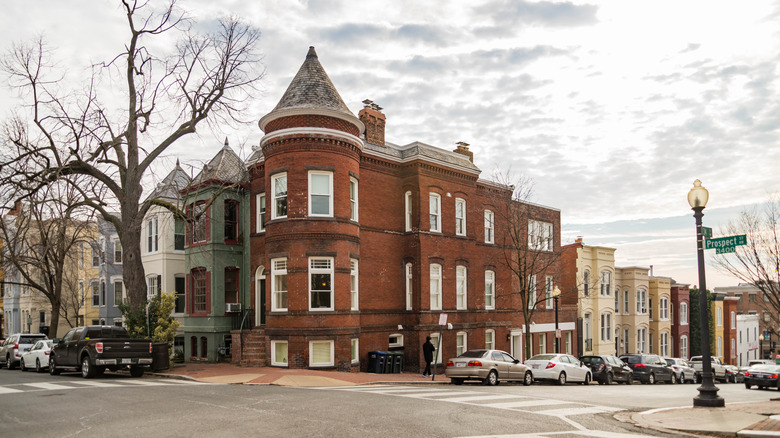This State Has The Highest Salaries, But What Do The Home Prices Look Like?
America is facing a cost of living crisis. The initial outbreak of COVID-19 sent inflation rates through the roof. All the while housing has become less affordable. A January survey showed 73% of respondents are struggling to afford to pay for anything aside from their basic necessities.
Still, there's one area that seems to be performing better, at least when it comes to wages: Washington D.C. Median household income in D.C. is $108,200, according to 2023 U.S. Census Bureau data. That's well above the national average of $80,610 in 2023. Before you look into moving, keeping in mind that the cost of renting or buying a house is similarly above the average—despite home prices in Washington D.C. finally trending down just a few years ago.
Florida State University announced that median home prices across the United States rose to $435,300 in June 2025. By comparison, the median value in Washington D.C. was $761,465 in 2024, based on data released by the U.S. Department of Health and Human Services. Rental properties aren't much better, going for an average of $2,544 in D.C. compared to the 2024 national average of $1,755. This isn't an issue that's exclusive to Washington D.C., of course; American housing prices overall rose 2.9% on average from 2024 to 2025, according to the Federal Finance Housing Agency. As of 2022 the sale price for single-family homes was more than five times higher than the median household income across the country, representing at least a 30-year high point.
How D.C.'s job market affects the median salary
Washington D.C. is the seat of power in our country, so it's easy to understand why it is home to wealthy, powerful individuals and foreign dignitaries. Members of the Senate and House of Representatives, alongside other delegates, receive an annual compensation of $174,000—more than double the United States average. That's not to mention additional sources of income, such as book deals for these politicians that far outstrip their annual salaries. Many engage in illicit means of income that have been addressed by recent legislation, including the Banning Insider Trading In Congress Act.
Not all members of Congress live in Washington D.C. due to its high cost of living and the necessity of campaigning for future elections in their home states . There is also a large presence of these often-wealthy individuals, their visitors, and well-paid Congressional lobbyists. The effect has been a gentrification of the area as original residents are pushed out of the area due to soaring real estate costs. The actual work conducted by our elected officials can also have a substantial effect on the national housing market, with recent tariffs poised to have a costly impact on homebuyers nationwide as the price of goods and building materials rise.
How Washington D.C. is trying to address its cost of living crisis
This situation may look hopeless to the average person interested in living around Washington D.C., but the district has started efforts toward making accommodations more affordable in recent years. D.C. Mayor Muriel Bowser released an order on housing in May 2019 which sought to add 36,000 new residential housing units by 2025, at least a third of which must serve low-income needs. This included income- and rent-restricted housing for those earning between 30% and 80% of the region's median family income. Prior to that announcement, the Mayor's office reported that only a sixth of D.C.'s roughly 325,000 housing units were dedicated to affordable housing; and only a quarter of those houses were rent-controlled units.
Building more homes is not the only way that Washington D.C. has tried to make housing more accessible. The district's Low-Income Home Energy Assistance Program (LIHEAP), in partnership with its local utility provider Pepco, provides grants on a case-by-case basis, judging by family size, fuel type, and other factors. Meanwhile, other programs provide discounts such as $475 per year on electric bills or forgiveness upwards of $2,000 on past-due utilities. This nation's capital is a great case study proving that higher salaries don't always match the cost of living no matter what expert tips you follow to lower your utility costs. Local government assistance can go a long way, but it's going to take much more work going forward to fix the housing crisis across the United States.


